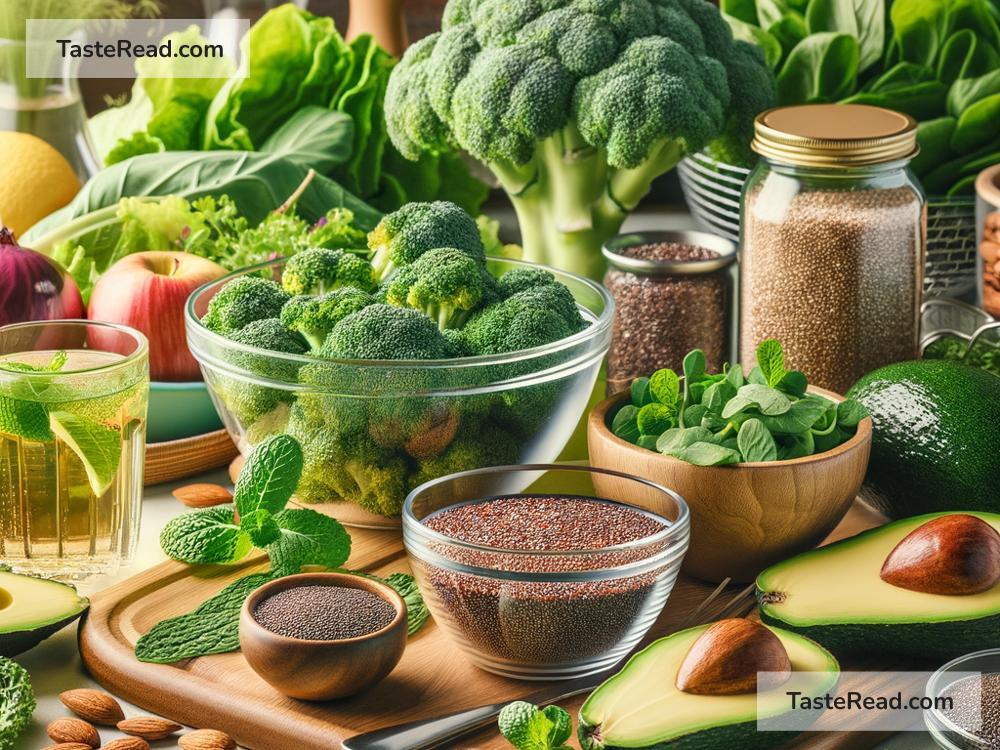Foods That Can Help Reduce the Risk of Polycystic Ovary Syndrome (PCOS)
Polycystic Ovary Syndrome (PCOS) is a common hormonal condition that affects many women, especially during their reproductive years. Women with PCOS often experience symptoms such as irregular periods, weight gain, excessive hair growth, acne, and difficulty getting pregnant. Although the exact cause of PCOS is not clear, experts believe that insulin resistance and hormone imbalances play an important role.
One way to reduce the risk of PCOS or manage its symptoms is by making healthy food choices. Certain foods can help balance hormones, manage blood sugar levels, fight inflammation, and improve overall health. If you are dealing with PCOS or want to lower your risk, here are some foods to include in your diet.
1. Leafy Green Vegetables
Vegetables like spinach, kale, and Swiss chard are packed with vitamins and minerals, such as magnesium, potassium, and iron. These nutrients help regulate hormones and reduce inflammation in the body. Leafy greens are also low in calories and carbohydrates, making them a great option for managing blood sugar levels.
Why they help: Magnesium in leafy greens has been found to help stabilize hormones and alleviate symptoms like mood swings and PMS (premenstrual syndrome), which are common in women with PCOS.
2. Fatty Fish
Salmon, mackerel, and sardines are rich in omega-3 fatty acids, which are healthy fats that reduce inflammation and improve hormone function. Omega-3s are particularly helpful in lowering the levels of androgens (male hormones) that are often elevated in women with PCOS.
Why they help: Omega-3 fats fight inflammation, which is linked to PCOS, and support heart health – a concern for women with PCOS, as they are at a higher risk of developing heart disease.
3. Whole Grains
Whole grains like quinoa, brown rice, oats, and barley are full of fiber, which helps regulate blood sugar and prevents insulin spikes. Women with PCOS often struggle with insulin resistance, a condition where the body doesn’t effectively use insulin. Incorporating whole grains into your meals can make a significant difference.
Why they help: Fiber slows down the digestion of carbohydrates and keeps blood sugar levels stable, which is essential for managing PCOS symptoms and preventing weight gain.
4. Nuts and Seeds
Almonds, walnuts, chia seeds, and flaxseeds are excellent sources of healthy fats, fiber, and protein. These foods can help maintain hormone balance and reduce cravings. Flaxseeds, in particular, contain lignans, a compound that can lower androgen levels, while chia seeds are rich in antioxidants that combat inflammation.
Why they help: Nuts and seeds provide long-lasting energy and help keep you full, reducing the need for unhealthy snacks that raise blood sugar levels.
5. Low-Glycemic Fruits
Not all fruits are created equal when it comes to PCOS. Low-glycemic fruits like berries, cherries, apples, and pears are ideal because they don’t cause a sharp spike in blood sugar levels. They are loaded with vitamins, fiber, and antioxidants, which support overall health and fight inflammation.
Why they help: Antioxidants in berries and cherries help repair cell damage and reduce oxidative stress, which is frequently linked to PCOS.
6. Legumes
Beans, lentils, and chickpeas are rich in plant-based protein and fiber, making them excellent options for stabilizing blood sugar and improving digestion. Legumes are also high in iron, which is especially beneficial for women who experience heavy menstrual bleeding as a result of PCOS.
Why they help: Plant-based proteins are easier to digest and can soothe digestion issues – a common complaint among women with hormone imbalances.
7. Healthy Fats
Avocados, olive oil, and coconut oil are examples of healthy fats that the body needs for hormone production. These fats can improve insulin sensitivity and help reduce inflammation, which is a key factor in PCOS. Incorporating these fats into your meals can also keep you satisfied and prevent overeating.
Why they help: They provide the building blocks for hormone regulation and offer anti-inflammatory properties, which help combat PCOS-related problems.
8. Fermented Foods
Yogurt, kefir, sauerkraut, and kimchi are rich in probiotics that support gut health. The gut microbiome plays an essential role in hormone regulation, so eating fermented foods can be beneficial for women with PCOS.
Why they help: A healthy gut is linked to better insulin sensitivity, improved digestion, and reduced inflammation – all important factors for managing PCOS symptoms.
9. Green Tea
Green tea is rich in antioxidants called catechins, which can help improve insulin levels and reduce inflammation. Drinking green tea regularly may also support weight loss, which is often helpful for managing PCOS symptoms.
Why it helps: Green tea provides a gentle boost to metabolism and promotes overall health without spiking blood sugar levels.
Foods to Limit or Avoid
Just as eating the right foods is essential, avoiding harmful ones is equally important. Women with PCOS should try to limit processed foods, sugary snacks, refined carbohydrates (like white bread and pasta), and fried foods. These can cause insulin spikes, increase inflammation, and worsen symptoms over time.
Final Thoughts
While there’s no one-size-fits-all approach to treating PCOS, making smarter food choices can go a long way in managing the condition and reducing your risk. Aim for a balanced diet that includes plenty of fresh vegetables, whole grains, healthy fats, and lean protein. Drink plenty of water, exercise regularly, and consult a doctor or nutritionist for personalized advice.
Taking small steps toward healthier eating can make a big difference in how you feel and help you take control of PCOS for a happier, healthier life.


